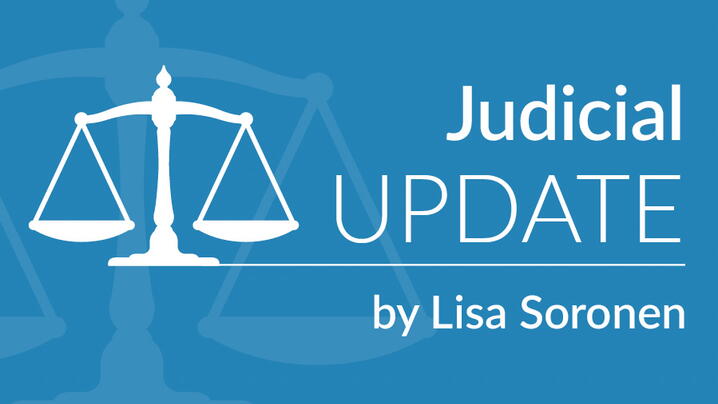
by Lisa Soronen, executive director, State and Local Legal Center
In Reed v. Town of Gilbert, Arizona (2015), the Supreme Court held that strict, usually fatal, scrutiny applies to content-based regulations of speech. One of the questions in NIFLA v. Becerra is whether the Court means for Reed to apply to nearly every law regulating content-based speech. The State and Local Legal Center (SLLC) filed an amicus brief arguing that the case should not be read that broadly.
California law requires that licensed pregnancy-related clinics distribute a notice stating that publically-funded family planning services, including contraception and abortion, are available. It also requires unlicensed pregnancy-related clinics to distribute a notice that they are unlicensed. The National Institute of Family and Life Advocates (NIFLA) operates 111 pregnancy centers in California. None offer abortions or abortion referrals; only 73 are licensed.
In NIFLA v. Becerra, NIFLA claims that both requirements violate the First Amendment Free Speech Clause. The ninth circuit disagreed.
In its brief, NIFLA argues that following Reed strict scrutiny applies to nearly any content-based regulation of speech, including the laws at issue in this case. Per strict scrutiny, a regulation of speech must serve a compelling government interest and be narrowly tailored. It is difficult for government regulation of speech to pass strict scrutiny.
The SLLC amicus brief doesn’t take a position on whether the disclosure laws at issue in this case violate the First Amendment. Instead, it points out that for decades the Supreme Court has not applied strict scrutiny to laws regulating commercial speech and sexually oriented businesses even though such laws regulate speech based on their content. The Supreme Court, for example, has upheld a zoning ordinance prohibiting adult movie theatres (versus other movie theatres) near residential areas, churches, parks, and schools. The Court didn’t apply strict scrutiny in that case.
The brief argues that Reed “did not mention, let alone overrule, any of this Court’s precedents that applied [lower] scrutiny to laws that differentiated by certain subjects or topics. This Court should not construe Reed as having silently done so, nor explicitly do so here.”
Finally, the brief points out that local governments require numerous notice and disclosure requirements (e.g., restaurants must post signs explaining how to provide first aid to choking patrons), which under NILFA’s interpretation of Reed would be subject to strict scrutiny. Such an often innocuous ordinance might no longer be constitutional.
John Baker, Katherine Swenson, Karl Procaccini, Holley Horrell, and Virginia McCalmont, Greene Espel, wrote the SLLC amicus brief, which these organizations joined: National League of Cities, United States Conference of Mayors, International City/County Management Association, and International Municipal Lawyers Association.
New, Reduced Membership Dues
A new, reduced dues rate is available for CAOs/ACAOs, along with additional discounts for those in smaller communities, has been implemented. Learn more and be sure to join or renew today!
